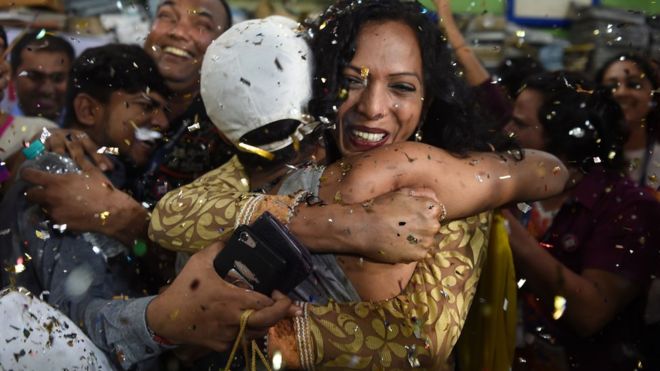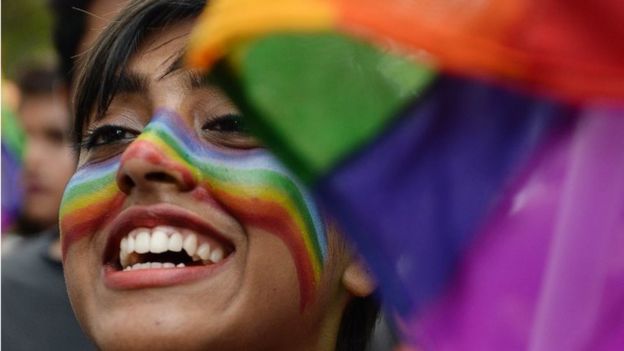
Kathmandu (Pahichan) September 6 – In a historic verdict, India’s Supreme Court ruled that gay sex is no longer a criminal offence in the country.
The ruling overturns a 2013 judgement that upheld a colonial-era law, known as section 377, under which gay sex is categorised as an “unnatural offence”.
It is one of the world’s oldest laws criminalising gay sex, and India has been reluctant to overturn it.
Campaigners outside the court cheered and some broke into tears as the ruling was handed down.
“Criminalising carnal intercourse is irrational, arbitrary and manifestly unconstitutional,” Chief Justice Dipak Misra said while reading out his judgement.
The law was first struck down by the Delhi high court in 2009, but it was reinstated by the Supreme Court in 2013, after several political, social and religious groups petitioned it to reinstate the law.
It is a 157-year-old colonial-era law which criminalises certain sexual acts as “unnatural offences” that are punishable by a 10-year jail term.
The law punishes, in its own words, “carnal intercourse against the order of nature with any man, woman or animal”.
While the statute criminalises all anal and oral sex, it has largely affected same-sex relationships.
 Image copyrightAFP
Image copyrightAFPIndia’s gay and transgender communities have fought long and hard to strike down the law.
Human rights groups have said police have used the statute to harass and abuse members of the LGBT community.
Equal rights activists have also argued that the very existence of such a law was proof of discrimination based on sexual orientation.
Source : BBC
Copyright © All right reserved to pahichan.com Site By: Sobij.